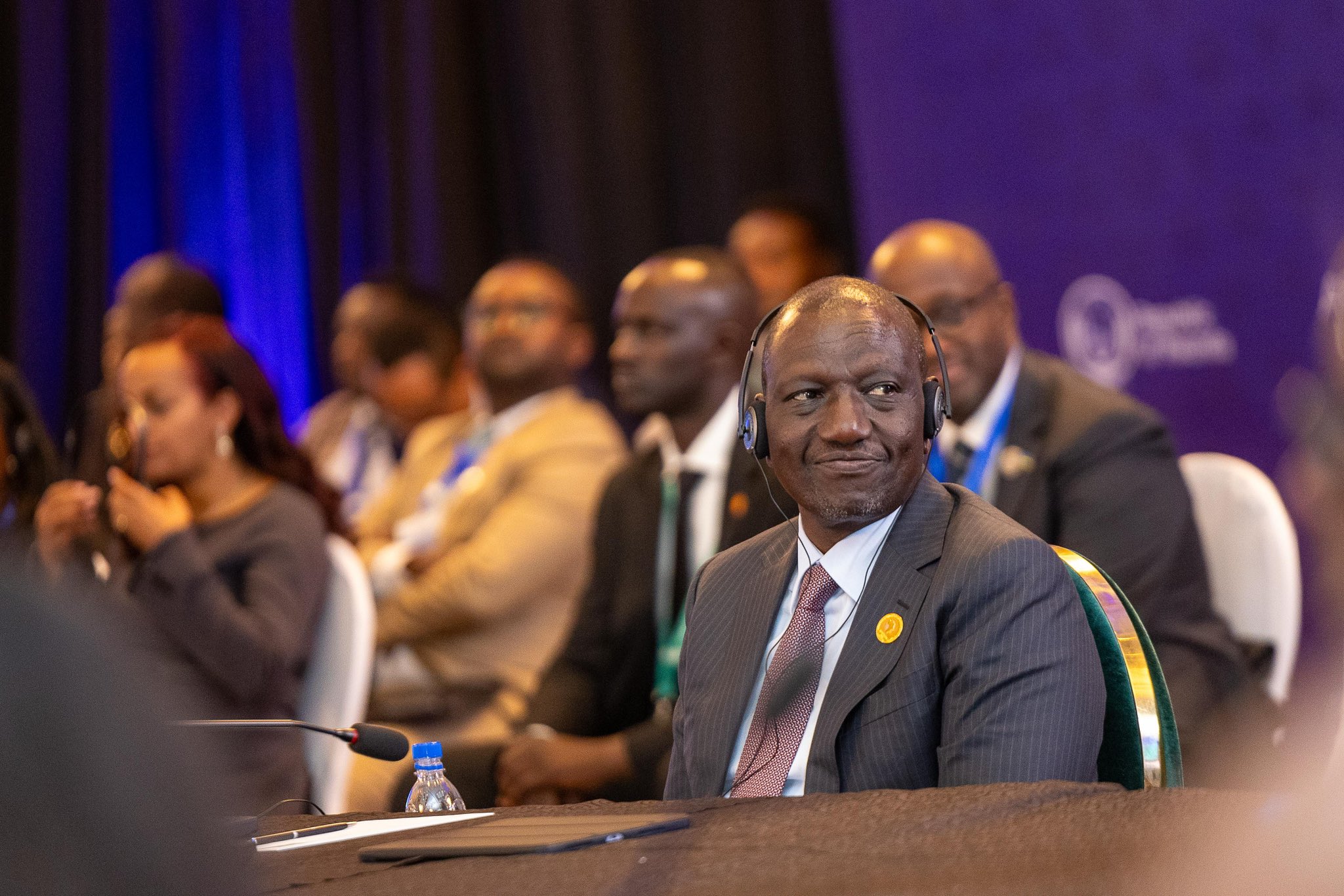
Will Kenya get it this time? » Capital News
NAIROBI, Kenya, Feb 15 – Kenya is making its second attempt to secure the Chairmanship of the African Union Commission (AUC) after falling short eight years ago.
In 2017, Moussa Faki of Chad defeated Kenya’s candidate, Amina Mohamed, after multiple voting rounds, delivering a bitter loss to Kenya’s bid for the AU leadership.
Despite Nairobi’s extensive lobbying, some East African neighbors, including Uganda, Djibouti, and Burundi, did not support Kenya’s bid.
Mohamed advanced past the first three rounds, reaching the final contest against Faki.
However, she lost by three votes (28-25) in the decisive round, with one abstention.
In the subsequent seventh vote, Faki secured 38 votes, surpassing the required two-thirds majority. The Southern African Development Community (SADC) bloc abstained.
This time, Kenya is backing former Prime Minister Raila Odinga in a fresh bid for the AUC chairmanship.
Odinga faces stiff competition in Addis Ababa, where the 38th Ordinary Session of the AU Assembly convened on Saturday.
Endorsements
President William Ruto has crisscrossed the continent to rally support for Kenya’s bid and has dipatched Odinga to personally meet African leaders.
Shifts in alliances, geopolitical considerations, and regional politics often make the final outcome uncertain leaving the race open to the last minite.
Several African nations have publicly endorsed Odinga to succeed Faki, with his campaign team claiming support from at least twenty-eight nations.
However, estimates based on Ruto’s diplomatic engagements suggest backing from about nineteen countries.
Among those supporting Kenya are Uganda, Tanzania, Senegal, Ghana, Guinea Bissau, Togo, Gambia, Zambia, Malawi, Zimbabwe, Equatorial Guinea, the Democratic Republic of Congo, Rwanda, Burundi, Seychelles, Mauritius, Algeria, South Sudan, and Eritrea.
President Ruto has personally engaged the Heads of State from these countries.
However, diplomatic meetings do not guarantee votes, as last-minute political calculations could shift allegiances.
SADC, despite having endorsed no candidate, has through its Secretariat asked members of the 16-nation bloc to consider Madagascar’s candidate, Richard Randriamandrato.
SADC votes
In a letter dated February 12, SADC Executive Secretary Elias Magosi confirmed Madagascar’s formal request for regional support, stating that “there is no need to convene an Extraordinary Council of Ministers” and urging all SADC nations to back Randriamandrato’s bid.
This last-minute move could weaken Odinga’s support if the bloc votes as a unit. However, the SADC letter is not binding, as only a formal resolution by the bloc’s summit can enforce a unified vote.
Kenya remains confident of support from some southern African countries and has downplayed SADC’s stance as inconsequential, maintaining that Odinga remains the frontrunner.
Beyond regional politics, concerns over President Ruto’s handling of the Democratic Republic of Congo (DRC) conflict have emerged as a potential obstacle to Odinga’s bid. Some analysts warn that Kenya’s approach to the crisis might influence voting decisions.
The DRC, which initially signaled support for Kenya, may be reconsidering its stance due to these tensions.
Odinga wrapped up his campaign with a final visit to Burundi, where he met President Évariste Ndayishimiye in a last push for regional backing.
His engagements with African leaders have been crucial, but whether they will secure victory remains uncertain.
49 votes
The election, conducted by secret ballot, requires a candidate to secure a two-thirds majority to win outright in the first round.
With six AU member states—Mali, Burkina Faso, Sudan, Niger, and Gabon—barred from voting due to sanctions following military takeovers, the number of available votes stands at forty-nine.
If no candidate secures the threshold, successive rounds will be held. If the election reaches the third round, a simple majority will determine the winner.
Multiple voting rounds could lead to unpredictable shifts, testing the strength of Kenya’s diplomatic outreach.
Odinga’s rivals, Mahamoud Ali Youssouf of Djibouti and Richard Randriamandrato of Madagascar, have also intensified their campaigns.
Youssouf, seen as the main rival, reportedly secured Egypt’s support just after President Ruto’s visit to Cairo, strengthening his bid in North Africa and the Horn of Africa.
The AUC Commission consists of the Chairperson, Deputy Chairperson, and Commissioners, plus staff.
The Assembly elects the Chairperson and Deputy Chairperson, while the Executive Council consisting Foreig Ministers elects the Commissioners, who are then appointed by the Assembly.
The Commission members serve four-year terms, renewable once.
As part of institutional reforms, the AU Assembly decided in 2018 that, from 2021, the Commission would comprise eight members: the Chairperson, Deputy Chairperson, and six Commissioners.